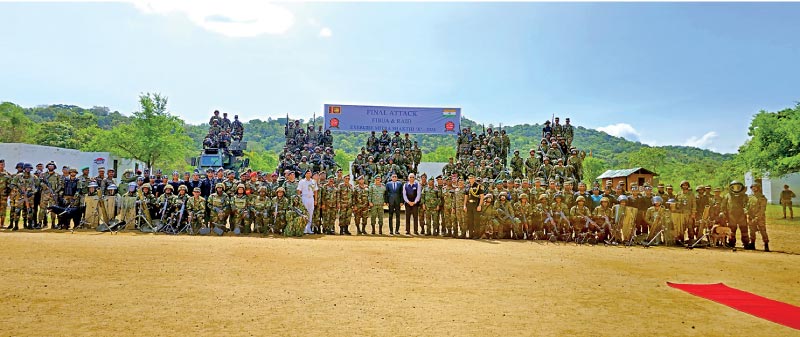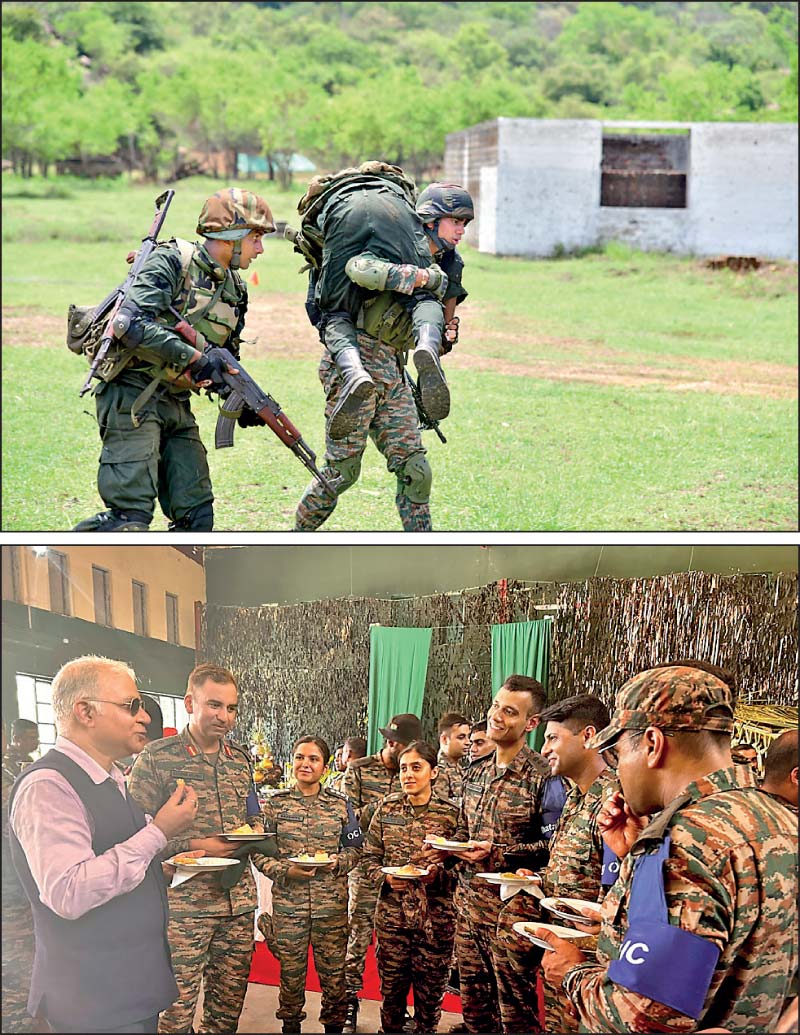Thursday Feb 19, 2026
Thursday Feb 19, 2026
Monday, 26 August 2024 00:11 - - {{hitsCtrl.values.hits}}

The 10th edition of the annual bilateral exercise, Mitra Shakti, was conducted at the Army Training School, Maduru Oya from 12-25 August.
The exercise is an annual event held in India and Sri Lanka alternatively. The Indian contingent arrived from Jodhpur to the Mattala Rajapaksa International Airport on 12 August by Indian Air Force IL-76 and left on 25 August post exercise.
The exercise aims at enhancing interoperability and mutual understanding between both armed forces and provides an opportunity to further deepen the close defence relationship based on professional respect, personal bonding, and extensive training interaction.
The exercise helps in building proficiency in tackling transnational terrorism, the conduct of joint tactical operations, and building combat skills. It also provides an ideal platform for the sharing of each other’s experiences and learning from best practices being followed.
The final exercise was witnessed by Defence State Minister Premitha Bandara Tennakoon, Indian High Commissioner to Sri Lanka Santosh Jha, Sri Lankan Army Commander Lt. Gen. Vikum Liyanage, and other senior officers of Sri Lanka and representatives of the High Commission of India.
Both sides also carried out a weapon display, wherein the latest weapons including drones being utilised by both armies, were showcased. In addition, sports activities and Yoga were included as part of the exercise curriculum during this edition.
Exercise Mitra Shakti is one of the largest bilateral exercises being conducted in the region. Based on the success of previous editions of Exercise Mitra Shakti, the exercise was recently upgraded from a combined arms concept to a bi-service level engagement, which signifies the willingness of both countries to enhance defence co-operation to fight the menace of terrorism and other common threats effectively, in consonance with India’s ‘Neighbourhood First’ policy and vision of ‘Security and Growth for all in the Region (SAGAR).’
